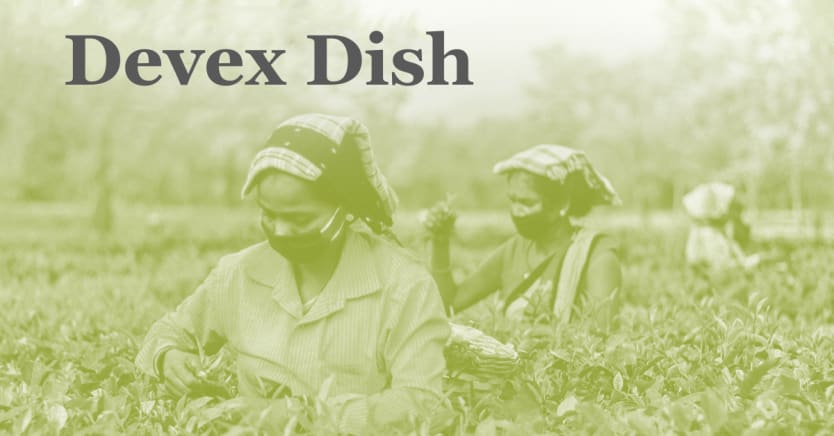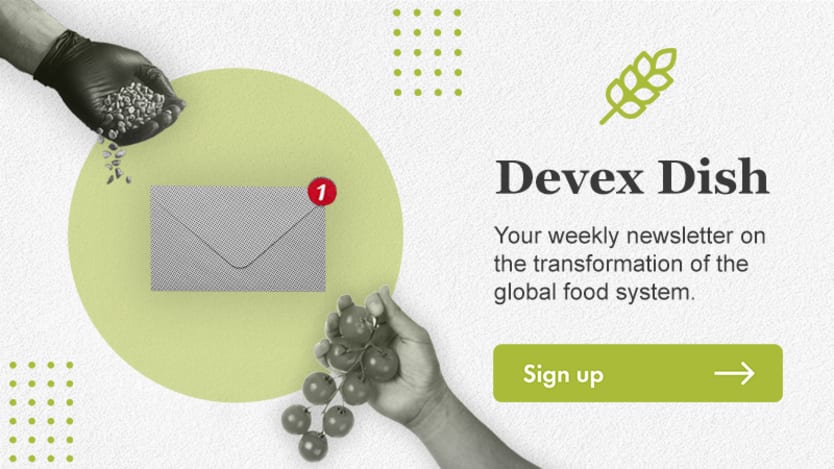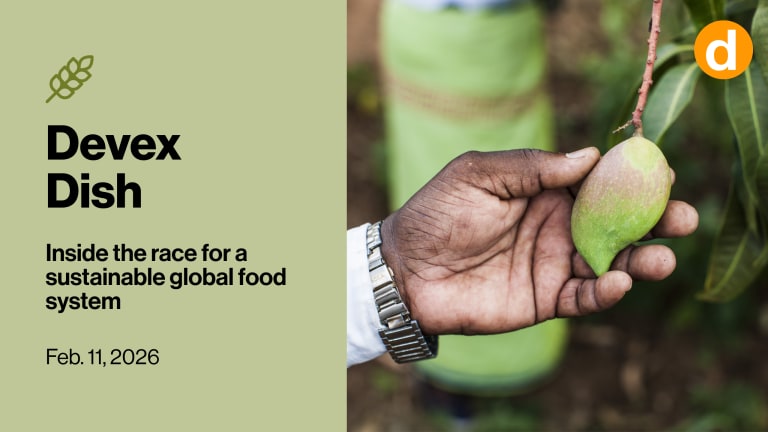
Why is Haiti’s food system so broken, even after billions of dollars in foreign aid have flowed in following natural disasters? On my recent reporting trip, I aimed to discover the answer to this question.
What I saw there was a food system with dysfunction on nearly every level, such that it’s unsurprising Haiti ends up relying primarily on imports to feed one of the most food insecure populations in the world. After stopping to buy snacks on the long drive from Port-au-Prince to earthquake-affected Les Cayes, the small gas station shop had shelves full of brands I recognized — because they were nearly all American.
Even during periods without a disaster, the challenges for Haiti to produce and distribute enough food domestically are many. As I wrote last week, farmers have little access to agricultural extension services to help them improve yield and adapt to climate change. The country lacks an adequate cold chain, or low-temperature supply chain, so fresh produce spoils often. Poor road conditions, gas shortages, and blocked routes due to gang activity delay and increase costs for the movement of locally produced food.
This is a preview of Devex Dish
Sign up to this newsletter to get the inside track on how agriculture, nutrition, sustainability, and more are intersecting to remake the global food system in this weekly newsletter.
But fixing any of these issues comes back to one thing: citizen security. If people don’t feel safe in their day-to-day lives, it’s tremendously difficult for the systems around them to function properly. Farmers can’t predictably plant crops, people don’t want to leave their homes to shop at markets, and food shipments cannot reliably reach destinations around the country.
All of this dramatically impacts the price of locally produced food, making imports the unfortunate but logical choice — especially after an emergency, when the top priority is ensuring people get fed.
Fragility, violence, and conflict have similar effects on hunger globally. This year’s “The State of Food Security and Nutrition in the World” report found that low- and middle-income countries affected by conflict, as well as climate extremes and economic downturns, saw the largest increases in undernourished people. And this month’s Global Hunger Index showed that more than half of the people who were hungry in 2020 lived in countries with active conflict.
Read my full visual story from Haiti here. And I want to hear from you: Do you see the food system failing in your country in multiple places? What needs to change for its issues to be addressed? Write to me at dish@devex.com.
From your mouth
Last week, I asked about the difficulties your local farmers face in accessing what they need to maximize productivity for economic stability. Charles Eze of Nigeria told me that farmers there struggle because of a weak economy. “Getting farm inputs [such as seeds] is really an uphill task, for many farmers and food processors in Enugu State,” he said.
Feed the Future’s future
On Thursday, the United States Agency for International Development released its updated Global Food Security Strategy, which will guide the next five years of the Feed the Future program. Along with a handful of “new or elevated priority areas,” the document outlined three objectives that it aims to achieve:
• Inclusive and sustainable agriculture-led economic growth.
• Strengthened resilience among people and systems.
• A well-nourished population, especially among women and children.
The strategy will help inform how a $5 billion investment in the government’s signature food security initiative — outlined by USAID Administrator Samantha Power last month — will be spent. Some of the funding, which was among the few concrete commitments made as a part of the United Nations Food Systems Summit, will go toward expanding Feed the Future to additional countries.
Bring home the bacon: Job opening
Director for Digital Innovations in Agriculture
Grameen Foundation
United States
At the end of August, the U.S. Government Accountability Office found that many of Feed the Future’s performance indicators lacked measurable targets. When I asked USAID if GAO’s recommendations had been taken into account while formulating the new strategy, the agency told me that they were, “specifically in the Monitoring, Evaluation and Learning Section,” and that Feed the Future “plans to address all of the findings in the next phase of implementation.”
+ ICYMI: Government watchdog report finds Feed the Future data falls short
Speed the plow
How can collective intelligence — innovation methods that combine human and machine intelligence — accelerate progress on the Sustainable Development Goals? Catherine Cheney dug into the approach and how UNDP Zimbabwe Accelerator Lab used it to tackle food security issues in the context of COVID-19.
Devex Pro: How tech can help global development tap into the power of the crowd
+ A Devex Pro subscription offers deeper analysis of the development sector, exclusive digital events, and access to the world’s largest global development job board. Get access to these perks by signing up to our 15-day free trial.
All dried up
34%
—That’s how much climate change has slowed agricultural productivity growth in the drier regions of Africa and Latin America, according to the “2021 Global Agricultural Productivity Report” released amid last week’s Norman E. Borlaug International Dialogue.
A mouthful
“Continuing to publish reports about severe drought in Kenya with no program or structure to do anything about it is completely pointless.”
— Catherine Nakalembe, Africa program director, NASA HarvestNASA Harvest, the food security and agriculture program of NASA, is conducting a pilot project in Kenya and Uganda that uses photographs of agricultural fields from cameras on motorcyclists’ helmets. The project, Helmets Labeling Crops, aims to make satellite data actionable for farmers on the front lines of the most devastating impacts of a warming climate.
Read: How to make satellite data useful for farmers facing climate change
Chew on this
Staple crops in eight African countries are at risk due to rising temperatures and reduced rainfall. [International Fund for Agricultural Development]
By the end of 2025, 80 countries experiencing, or at risk of, ongoing fragility will benefit from regular support from the Global Nutrition Cluster, according to the coordination mechanism’s new strategy. [Global Nutrition Cluster]
Over the two weeks of the upcoming U.N. Climate Change Conference, COP 26, not a single day is dedicated to food and agriculture issues. [Successful Farming]

Search for articles
Most Read
- 1
- 2
- 3
- 4
- 5








